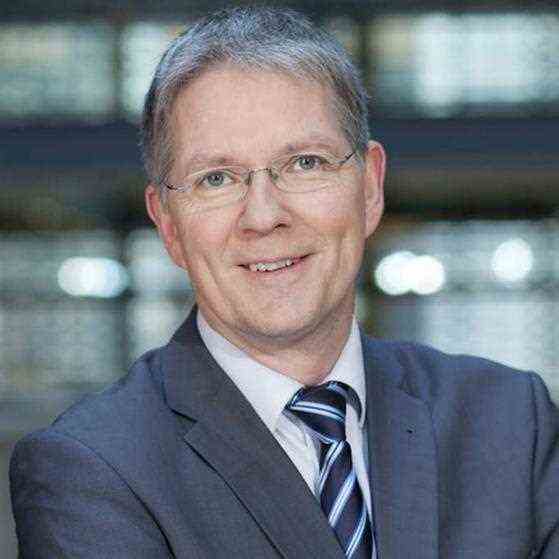Exclusive
Status: 02/23/2022 5:00 p.m
There are new doubts about the quality of the rapid test centers in Germany: According to research by WDR, NDR and SZ there are test centers that do not find a single positive case among several thousand tests.
The operators of rapid corona test centers in North Rhine-Westphalia have to report the number of tests and their positive cases to the Ministry of Health every day. As of February 8, just over a million tests were reported, including 35,007 positive results. But the striking thing: According to research by NDR, WDR and “Süddeutsche Zeitung” there were 24 large test centers on that day alone that had not reported a single positive test. A test center in Cologne even reported 9533 citizen tests and zero positive results for that day.
Drosten: “Not plausible”
For the Berlin virologist Christian Drosten, zero percent positive cases are “not plausible”, as he said in an interview. “With the very high incidence of the past few weeks, a significant proportion of the subjects should be positive.”
His colleague Oliver Keppler from the Ludwig Maximilians University in Munich adds that it is “highly unlikely” not to find a positive result in a thousand tests because even the best rapid tests have a false positive rate of 0.3 percent. “That means that even among 1,000 non-infected people, three tests should be positive.”
Has great doubts about thousands of tests without a single positive result: Christian Drosten.
Image: dpa
30,000 tests – not a single positive
The test center “AP Haus und Grund Verwaltungsgesellschaft” at Hohe Straße 148 in Cologne is particularly noticeable in the reports to the NRW Ministry. From mid-January to mid-February, she reported more than 30,000 tests without a single one being positive.
When asked, the managing director admits that the number of positive tests was probably “incorrect”. “This is due to the erroneous reporting by a former employee,” he writes via email. However, he only noticed this a day before WDR, NDR and SZ had sent him questions about the case.
Arnd Henze, WDR, on the lack of checks on the billing of quick tests
tagesschau24 6:00 p.m., 23.2.2022
But the reported number of tests carried out by “AP Haus und Grund Verwaltungsgesellschaft” also raises questions. While reporters from WDR, NDR and SZ counted fewer than 300 people visiting the test center on February 19, the operators reported to the ministry that exactly 3,723 tests had been carried out that day.
Managing Director Hohmann explains the large difference with the fact that the test center of the “AP Haus und Grund Verwaltungsgesellschaft” for the affiliated company “AP Assistenzprofis” carries out tests among applicants at a different address, but also carries out these tests under the number of the test center in Cologne to the ministry report. According to the Cologne health department, this is not permitted. A test center always gets a permit for a specific location. “Citizen tests may only be carried out, reported and billed at this location,” the office said in writing.
No positive cases in many places
The “Express-Test” test center in Hürth also reported hundreds of tests to the ministry for days at the end of January without a positive case. On request, the operator explains that rapid test centers are only allowed to test people who have no symptoms. “Even with the slightest symptoms such as a headache, runny nose or scratchy throat, patients are selected and not tested in our test center,” he says. In his opinion, this explains the few positive cases. He also switched to better tests in the meantime.
The Weidenpesch test center in Cologne also reports extremely few positive cases. Confronted with his unusual number of reports, the managing director simply replies: “We cannot explain how you know the numbers from our test center. After consultation with the ministry, we were informed that the data was strictly confidential.” When asked why he found so few positive cases, he “could not go into detail”.
The “Superol” test center in Wesel often reports up to a thousand tests a day, also with zero positives. The owner states that they have used three different rapid tests so far. “After consulting the health department and the new list from the Paul Ehrlich Institute, we found out that these hardly work at Omikron and have now switched to the Green Spring 4in1, which according to the PEI should have significantly better values there.”
Bewildering variety of tests
According to the Freiburg virologist Hartmut Hengel, there is “a completely confusing variety” of rapid tests in Germany. “This is certainly not the result of a functioning market, but rather a lack of regulation.” Although the Paul-Ehrlich-Institut was commissioned at the beginning of January to check the reliability of rapid tests under Omikron – the results are still not available today. Health Minister Karl Lauterbach expects it to happen “soon”.
The Associations of Statutory Health Insurance Physicians (KV), which are supposed to check the plausibility of the registration numbers nationwide, also deal with this task in very different ways. The KV Berlin expressly states that “too few positive cases represent a conspicuousness criterion”. Since August, the KV Berlin has therefore already 233 cases “for further examination to a debt collection agency.”
The KV Westfalen-Lippe, on the other hand, claims on request: “The evaluation of positive rates is not part of the test mandate of the associations of statutory health insurance physicians.” And the KV North Rhine says: “You must address questions about any positive or negative tests to the NRW Ministry of Health.”
No attention paid to fraud yet
If you ask the ministry, it says that the Association of Statutory Health Insurance Physicians “gets an overview” of the registration data “at the beginning of each month”. “If there are any abnormalities, they will be checked together with the health department,” the ministry assures.
Harald Rau is the health department of the city of Cologne. When asked about the many test centers with noticeably low positive rates, he concedes: “So far, our attention has not been focused on detecting fraud.” However, he has “now given the order that we develop an algorithm, i.e. automatic recognition of deviating test sites.”
Ministry of Health is holding back
The Federal Ministry of Health wriggles on the question of who should actually notice conspicuously low positive rates and states: The data reported to the state health authorities “can be transmitted to the respective KV”.
When the rapid test scandal came to light a year ago, Karl Lauterbach sounded very different. “We urgently need quality control,” he said at the time. At the time, his predecessor Jens Spahn had promised to involve the associations of statutory health insurance physicians more closely in control.
As reported by the Ministry of Health, their audits since the summer of last year have meant that “around 2.5 million euros have been paid back to the federal budget”. Since then, the federal government has paid out more than a thousand times, namely around 3.3 billion euros to the operators of rapid test centers. So far, the controls and checks have resulted in a return of 0.07 percent of the costs that the citizen tests have swallowed up.
Incidentally, the associations of statutory health insurance physicians themselves also benefit from the large number of quick tests: they are allowed to keep 3.5 percent of the total expenditure for themselves – for processing and testing.



